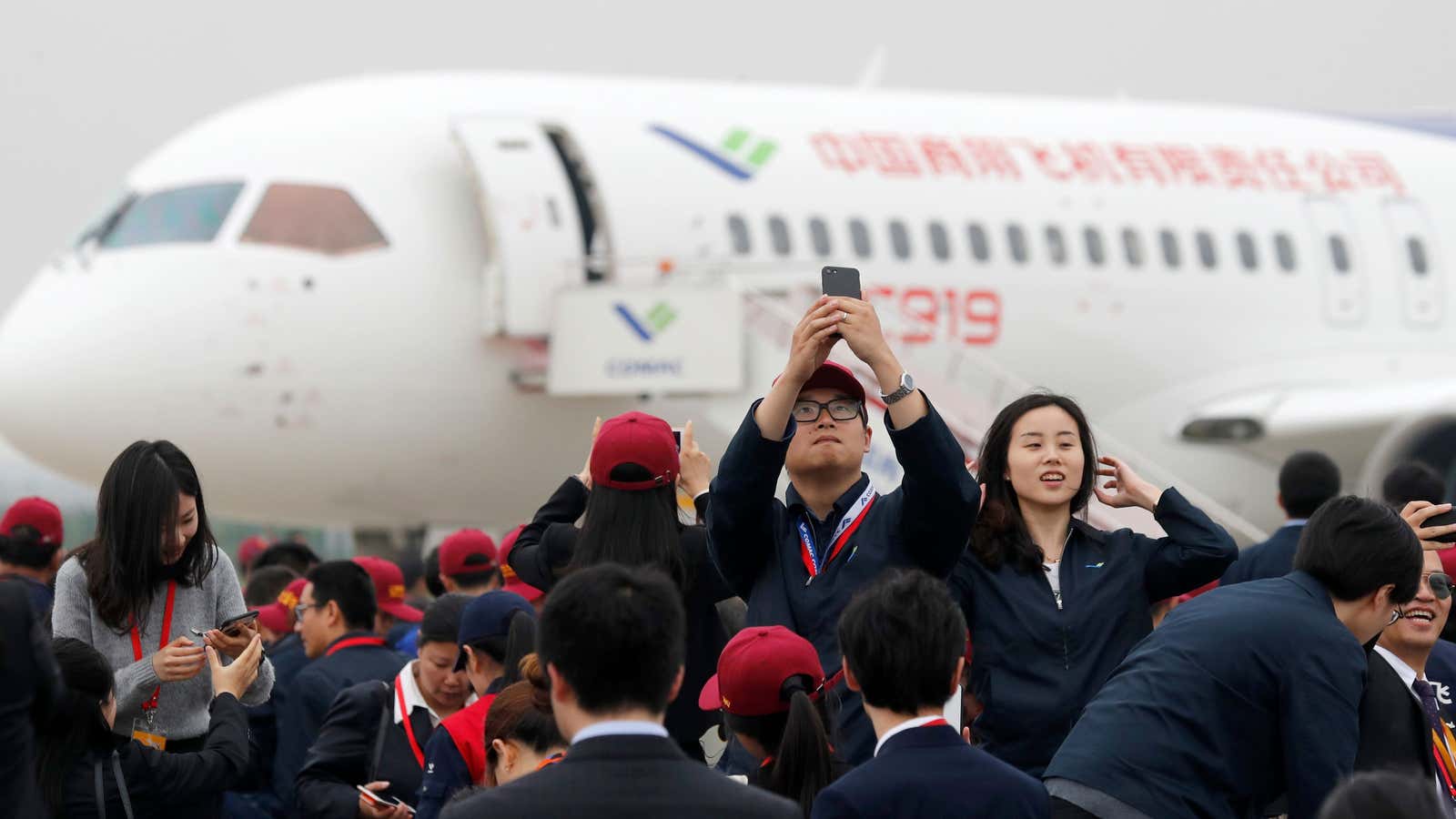People in China are taking a lot more flights, thanks to their growing spending power and the rise of a slew of Chinese budget airlines. In some cases, passengers new to flying have been behaving, well, badly. China’s turning to one of its favorite gambits to deal with this headache: a blacklist.
A total of 169 people made it to the country’s first passenger blacklist (link in Chinese) for flights and trains released today (June 1) by China’s aviation authority. Of them, 86 passengers (link in Chinese) were banned from flying for a year for the following reasons:
- Bringing banned items on board such as lighters, knives, tear gas, electroshockers, handcuffs, and bullets (70% of the barred list)
- Using other people’s IDs to take flights
- Picking quarrels on the plane
- Disobeying cabin orders
- Smoking on the plane
In total, there are nine kinds (link in Chinese) of actions that can get you banned from flights. Apart from the ones above, they include the following, according to an earlier announcement from the aviation authority March:
- Making up and spreading terror information
- Forceful boarding, intercepting an aircraft, intruding on the pilot cabin, runway, or apron
- Hindering or inciting others to hinder boarding and security checks, or attacking others
- Steal people’s belongings in the cabin
The blacklist didn’t elaborate on the specific kinds of disruptions or quarrels caused by the passengers. But the list comes after multiple reports of uncouth behavior by Chinese passengers both at home and abroad in recent years. In January, a Malaysian court fined a Chinese passenger who smoked (link in Chinese) during a fight between two cities in Malaysia. In 2017, there were two cases of elderly Chinese passengers tossing coins into the planes’ engines. In one, an 80-year-old woman tossed coins into the engines because she believed it would keep the journey safe—instead, the flight was delayed for six hours.
It’s a step up from an earlier blacklist by China’s National Tourism Bureau in 2016, which shared information about passengers fined for misconduct on flights with travel agencies and airlines, as well as storing the names for one to five years (link in Chinese).
The remaining people on the blacklist were barred from taking trains for reasons like smoking and traveling without a ticket.
